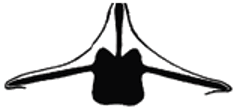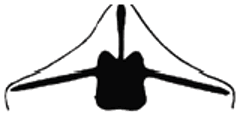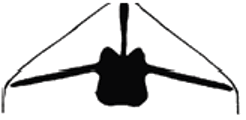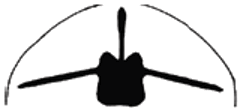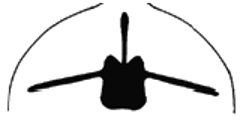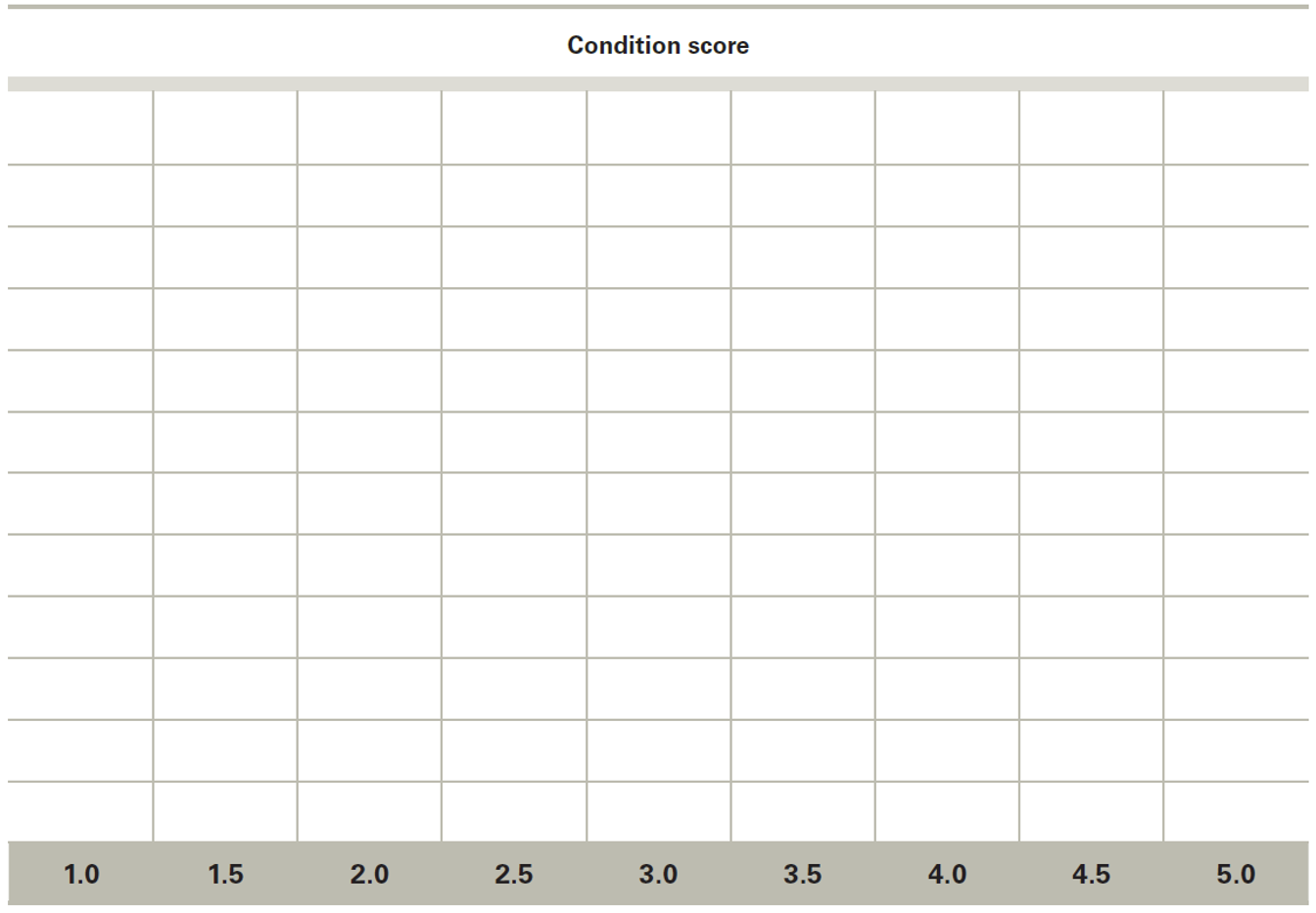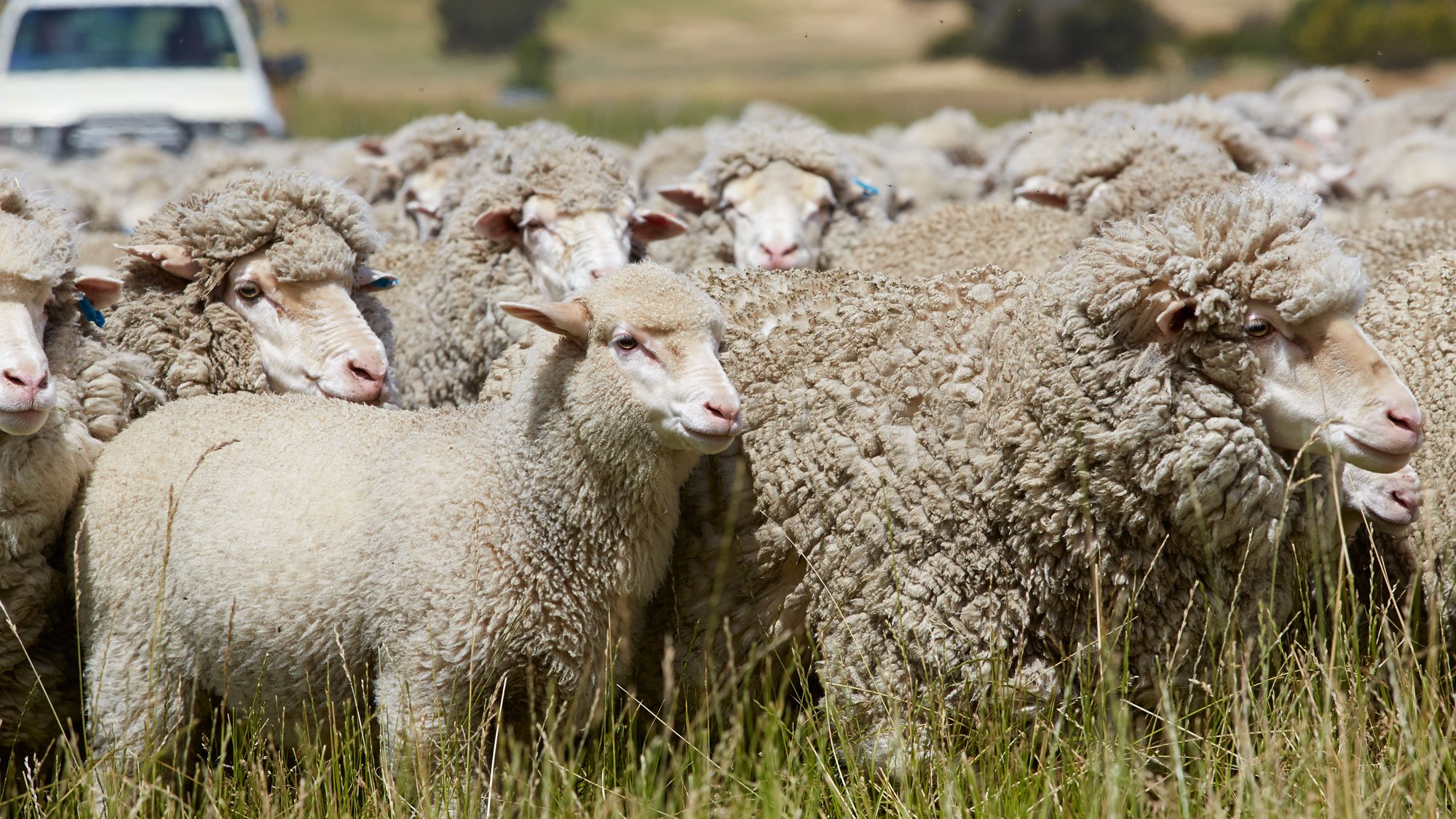Tool 10.1 Condition scoring
Condition scoring is a process to assess the body reserves of mature sheep. Condition scoring measures the tissue cover (fat and muscle) over the loin area. The animal is best examined in a race when it is standing and relaxed.
Condition scoring can be used to assess the average condition score of a mob or sometimes it is used to draft individual sheep in a mob so they can be managed in specific nutritional groups. Scoring 50 or more sheep at random from the middle of the mob (to allow the heavier, pushier sheep through at the start and miss the lighter sheep at the tail of the mob for a better average) provides an accurate indication of the mob’s nutritional status.
Condition score is a useful tool for understanding the nutritional status of sheep because it more directly reflects the underlying changes in muscle and fat as the animal’s nutritional status changes and is used across Australia to manage the nutritional status of adult breeding sheep.
View the “How to condition score” video at www.lifetimewool.com.au/conditionscore.html
How to condition score
 |
Condition scoring The animal should be standing in a relaxed position. It should not be tense, crushed by other animals or held in a crush. If the animal is tense it is not possible to feel the short ribs and get an accurate condition score. |
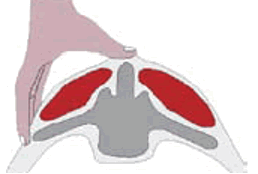 |
|
Condition Score 1 |
Score 1 - Backbone The bones form an elevated narrow ridge. Each vertebral process can be felt easily as a bone under the skin. There is only a very small eye muscle. The sheep is strong but quite thin (virtually unsaleable). |
Score 1 - Short Ribs The ends of the short ribs are very obvious. It is easy to feel the squarish shape of the ends. Using fingers spread 1 cm apart, it feels like the fingernail under the skin with practically no covering. |
|
Condition Score 2 |
Score 2 - Backbone |
Score 2 - Short Ribs The ends of the short ribs are rounded but it is easy to press between them. Using fingers spread 0.5 cm apart, the ends feel rounded like finger ends. They are covered with flesh but it is easy to press under and between them. |
|
Condition Score 3 |
Score 3 - Backbone Forward store condition - no excess fat. |
Score 3 - Short Ribs The ends of short ribs are well rounded and filled in with muscle. Using 4 fingers pressed tightly together, it is possible to feel the rounded ends but not between them. They are well covered and filled in with muscle. |
|
Condition Score 4 |
Score 4 - Backbone |
Score 4 - Short Ribs It is only possible to feel or sense one or two short ribs and only possible to press under them with difficulty. It feels like the side of the palm, where maybe one end can just be sensed. |
|
Condition Score 5 |
Score 5 - Backbone |
Score 5 - Short Ribs It is virtually impossible to feel under the ends as the triangle formed by the long ribs and hip bone is filled with meat and fat. The short rib ends cannot be felt. |
Source: LifetimeWool
Further descriptions to assist with quarter scores
| Condition Score | Description |
| 2.3 | Little cover over the top of short ribs. Just possible to feel each rib through muscle on top of short ribs. Ends of ribs are easily felt and possible to push between them. |
| 2.5 | Heavily concaved shape muscle/fat between spine and end of ribs. Ends of short ribs can be felt and possible to push between them. |
| 2.7 | Concave shape muscle/fat between spine and end of ribs, but with some cover over the top of short ribs. Ends of ribs can just be felt, but with some cover over them. |
| 3 | Good cover over top of short ribs, with a flat shape from beside the spine to the end of the short ribs. Ends of ribs are well covered, with individual ribs only just being able to be felt. |
| 3.3 | The start of a convex shape to muscle/fat over top of short ribs. Ends of short ribs well covered, difficult to feel individual ribs. |
| 3.5 | Convex shape indicating good cover of muscle and fat over top of short ribs. Ends of ribs very well covered. |
| 3.7 | Fully rounded cover over short top of ribs. Only just able to feel spine. |
| 4 | Spine is now disappearing. Difficult to feel at all. Very round all over. |
Source: Nathan Scott, Achieve Ag Solutions
Condition score recording sheet
Randomly score 50 sheep from the middle of the mob. Record the condition score of each sheep with an X on the chart. The middle score of the distribution is close to the average. In this example with 25 sheep, the median value is 3.0 but by using the chart you can see the average is just less than 3.0.
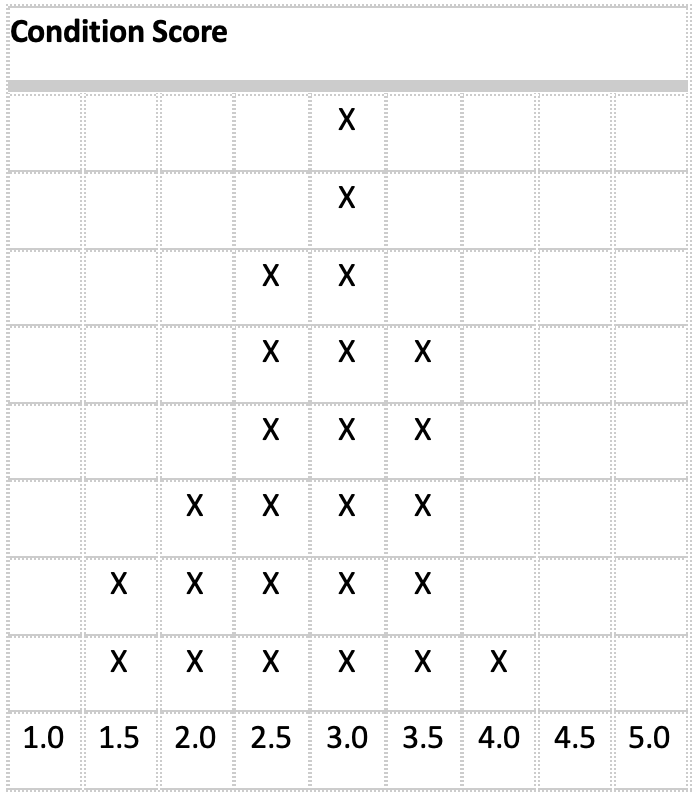
Use this blank template to graph your own sheep.
Source: Lifetimewool, adapted by AWI





